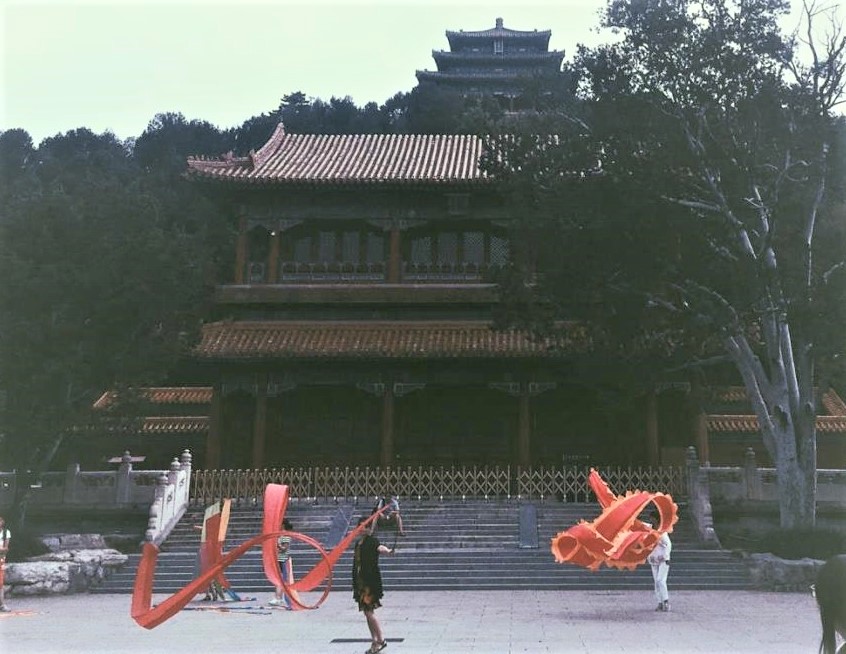Fourth Year Honours Seminars
All BGInS students in an Honours program are required to successfully complete one section of GINS 4090 in order to meet graduation requirements. Fourth year students will be permitted to select one section of GINS 4090 for their timetable.
Fall 2025 – GINS 4090
- Section A: Global Revolutions: Theory, History, Futures - Candace Sobers
-
France, 1789. Mexico, 1910. Iran, 1979. For centuries revolutions have shattered the status quo and remade societies at the local, national, and global levels. Revolutions are both politics and metaphor; future-oriented, but invoking mythic pasts. This course provides a detailed investigation into the theory, history, and futures of political revolutions across the globe and until modern times. Using historical sources and critical scholarship, we will investigate the foundations of contemporary order, including ideologies, revolutionary movements, citizenship and belonging, and counterrevolutions. A familiarity with modern history is an asset.
- Section B: Cyber Strategy and Cyber Warfare - Tyler Welch
-
This course explores how cyber strategy and cyber warfare impact international affairs. It tells the story of the development of global cyber capabilities ranging from early cyber weapons like Stuxnet, all the way to present-day cyber threats from actors such as the PRC’s Volt Typhoon and anti-Western non-state cyber groups.
It also details the ways in which state cyber programs deploy cyber tools for espionage, sabotage, disruption, and destruction – even including kinetic cyber weapons and cyber-enabled information operations. Finally, it will survey the specific roles played by (and the perspectives held by) state intelligence agencies, organized military units, cybercriminals, and politically motivated hacktivists. We will also explore the ecosystem of high-tech researchers, front companies, and private sector firms that underpin the global cyber threat environment.
Winter 2026 – GINS 4090
- Section C: Philanthropy, Good Intentions & Global Development - Marylynn Steckley
-
Many students and scholars of Global and International Studies aspire to contribute to positive change, improve the lives of others, and foster a better world. But the question of how to engage in meaningful social change, “help” others, and reduce poverty, inequality, and suffering is not at all straightforward. Global development has a sordid history, and contemporary philanthropic efforts are fraught with contention. Does foreign aid work? Are NGOs good? Can social justice be achieved in social enterprise?
This class is divided into three sections: the first two sections focus on critique. We will first explore some problems with contemporary development solutions, including the allure and the snags of “big ideas”, the pitfalls of Non-Governmental Organizations (NGOs), and the problems with private philanthropy. The historic and persistent failures of international assistance demand that we understand them, but they also serve as tragic illustrations of how trenchant inequalities of the human condition persist in our time: their histories give us a window into the proliferation of private foundations and social entrepreneurship. In the second section of our class, we will dig deeper into private-sector-led poverty reduction by exploring the potential of innovation, venture capital, and food science to remedy the problems of hunger, food insecurity, and climate change. Together, our two “critique” sections shed light on how dominant historic and contemporary aid strategies, ideologies, and “solutions” offer us a window into the root causes of global inequality and suffering: they shed light on the pitfalls of the development paths we have trod and illuminate pathways forward. With this insight, we then ask: What is to be done? In the final section of our class, we will explore concrete examples of meaningful and lasting social change – civic action, policy reform, community organizing – equipping ourselves with new tools and ideas to imagine possibilities for change to create a more just and equitable world.

International Placement – China
Share: Twitter, Facebook
Short URL:
https://carleton.ca/bgins/?p=4413
